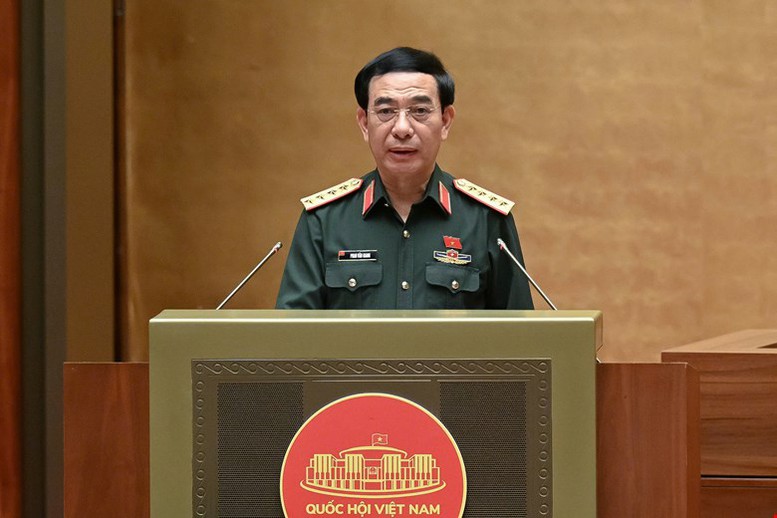
General Phan Van Giang, Minister of National Defense, presented the Draft Law on State of Emergency.
Authorized by the Prime Minister , General Phan Van Giang, Minister of National Defense, presented the Draft Law on State of Emergency.
Accordingly, the development and promulgation of the Law on State of Emergency aims to institutionalize the Party's policies and viewpoints on the tasks of national defense, security, and protection of the Fatherland in the new situation; overcome limitations and shortcomings in practice, ensure unity and synchronization, and improve the effectiveness and efficiency of the law on state of emergency, thereby contributing to protecting the interests of the State and the rights and legitimate interests of organizations and individuals.
The Draft Law consists of 6 chapters and 42 articles, stipulating the principles, order, procedures, and authority to declare, announce, and abolish a state of emergency; measures to be applied in a state of emergency; organization of implementation of Resolutions to declare and Orders to declare a state of emergency; responsibilities of agencies, organizations, and individuals in a state of emergency...
Accordingly, the draft law stipulates: Based on the developments of disasters, epidemics, national defense and security, social order and safety, and on the basis of proposals from ministries or Chairmen of provincial People's Committees, the Prime Minister shall request the National Assembly Standing Committee to declare a state of emergency. In case the Standing Committee cannot meet immediately, the Prime Minister shall request the President to declare a state of emergency nationwide or in each locality.
In order to decentralize, delegate power and ensure flexibility to promptly respond to emergency situations, the draft Law stipulates: In case of necessity, the Prime Minister may apply measures that are not yet prescribed by current laws and report to the competent authorities of the Party and the National Assembly as soon as possible to comply with the provisions of the Law on Organization of the Government 2025; the Chairman of the Provincial People's Committee decides to apply measures that are not yet prescribed by current laws and report to the competent authorities of the Party and the Prime Minister as soon as possible to comply with the provisions of the Law on Organization of Local Government 2025.
The draft law also stipulates: In case of necessity, the Prime Minister shall request the President to mobilize armed forces to the area to declare a state of emergency regarding national defense, security, and social order and safety.
The Minister of National Defense and the Minister of Public Security shall mobilize forces under their authority to the locality to declare a state of emergency in the event of a major disaster or epidemic to support local forces in rescue operations, overcoming the consequences of the disaster or epidemic, or to stabilize and maintain security, order and social safety.
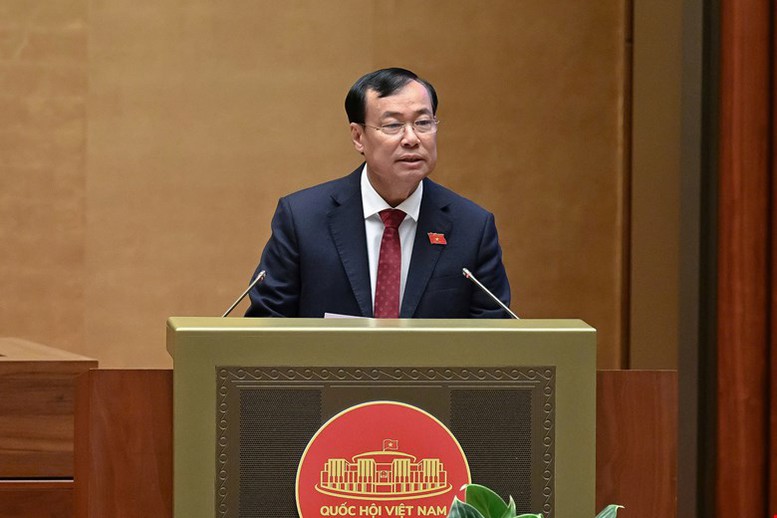
Chairman of the National Assembly's Committee on National Defense, Security and Foreign Affairs Le Tan Toi presented the Summary Report on the Review of the Draft Law.
Presenting the Summary Report on the Review of the Draft Law, Chairman of the Committee on National Defense, Security and Foreign Affairs Le Tan Toi said that the Committee agreed on the necessity of promulgating the Law.
Regarding the scope of regulation, this Law does not replace specialized laws that regulate issues related to the state of emergency. However, the determination of the state of emergency in specialized laws is not complete and specific, so it is necessary to study and regulate the determination of the state of emergency, the authority, and measures applied in the state of emergency in this Law to be complete, appropriate, and ensure consistency and unity in the legal system on the state of emergency.
Regarding the decentralization of power and authority to apply measures in a state of emergency, the National Defense, Security and Foreign Affairs Committee basically agrees with the provision delegating power to the Prime Minister: In case of necessity, measures that are not yet prescribed by current laws can be applied and reported to the competent authorities of the Party and the National Assembly as soon as possible, ensuring flexibility in responding to and handling complicated situations.
Regarding the enforcement force in a state of emergency, in principle, the building and organization of the force is the responsibility of the Government, ministries, branches and localities.
However, through studying international experience, surveying practices and reviewing relevant Laws (Law on Civil Defense), some opinions suggest that the Law needs to define principles for organizing forces in the direction of having specialized forces, part-time forces and widespread forces to execute in emergency situations; regulations on specialized or part-time forces corresponding to each type of emergency situation; at the same time, supplement regulations on training, coaching, drills and regular regimes and policies for subjects to ensure readiness to perform tasks when situations arise...
Thu Giang
Source: https://baochinhphu.vn/thong-nhat-linh-hoat-trong-ung-pho-tinh-trang-khan-cap-102250527182210963.htm


![[Photo] Collecting waste, sowing green seeds](https://vphoto.vietnam.vn/thumb/1200x675/vietnam/resource/IMAGE/2025/10/18/1760786475497_ndo_br_1-jpg.webp)

![[Photo] General Secretary To Lam attends the 95th Anniversary of the Party Central Office's Traditional Day](https://vphoto.vietnam.vn/thumb/1200x675/vietnam/resource/IMAGE/2025/10/18/1760784671836_a1-bnd-4476-1940-jpg.webp)

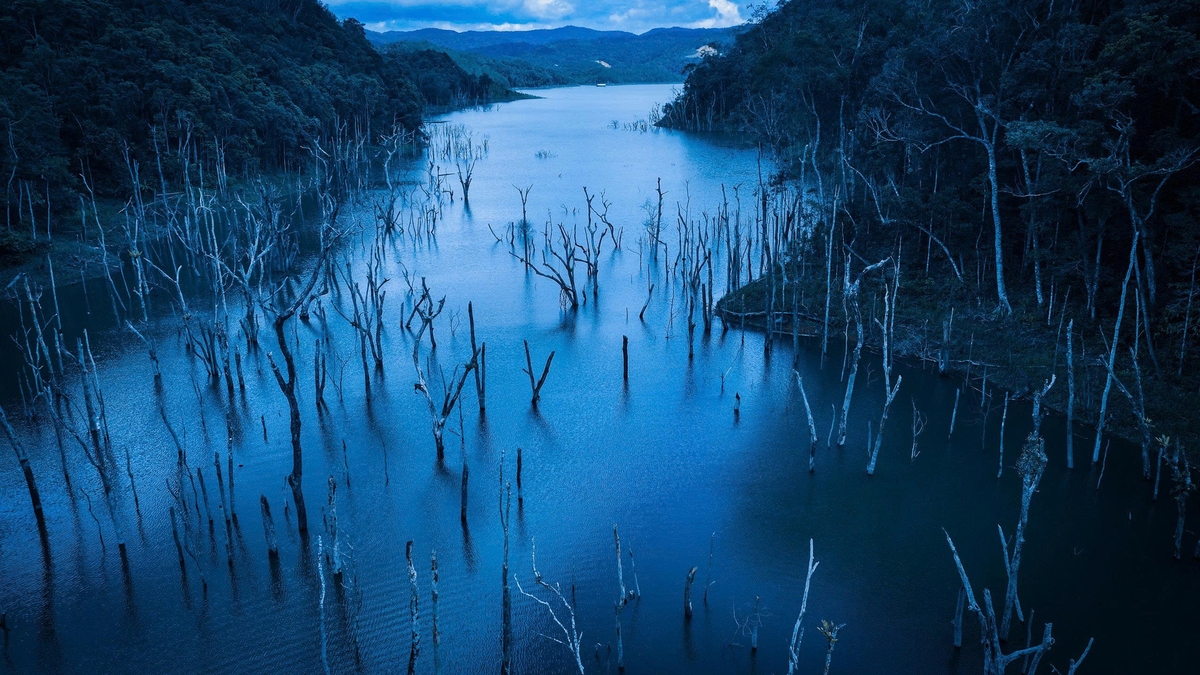



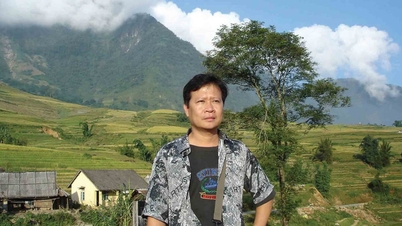












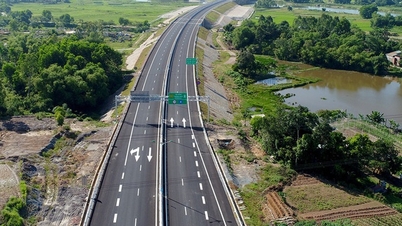
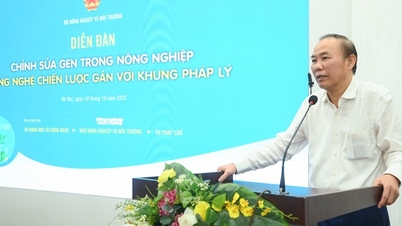

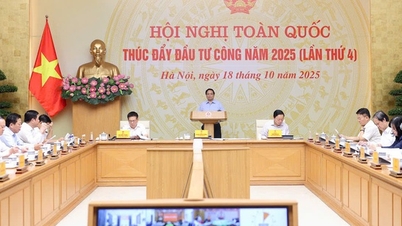
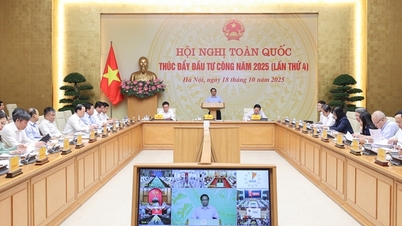



















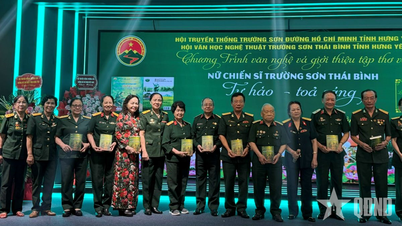















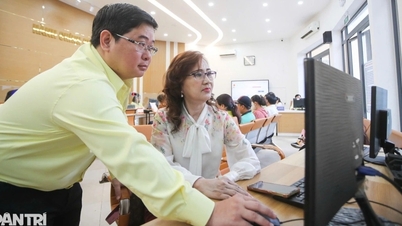












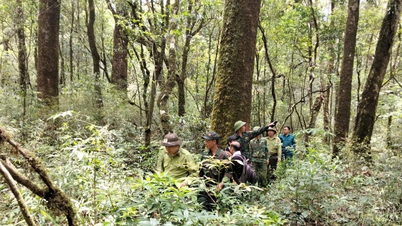

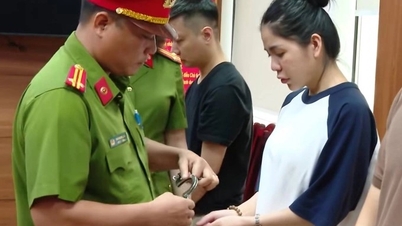



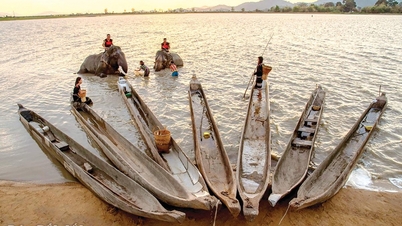














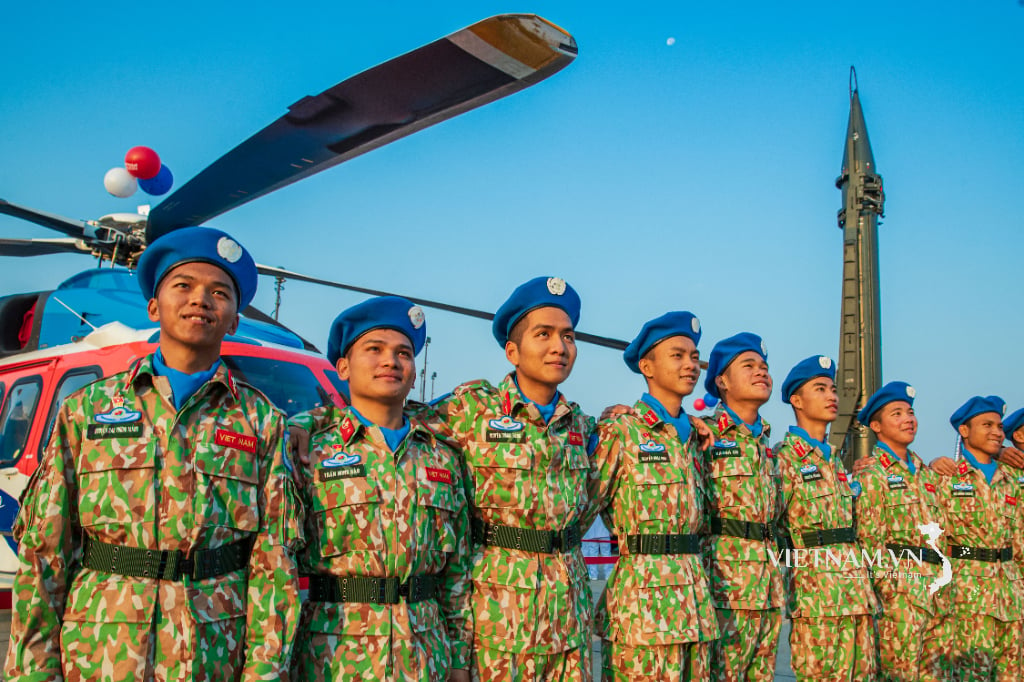
Comment (0)